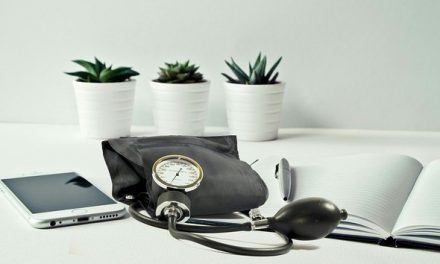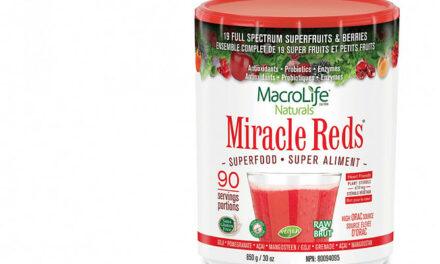You will be surprised to know that many people are actually unaware of the importance of maintaining normal blood pressure. Did you know they do not know that normal blood pressure is imperative for a healthy life?
Without the proper flow of blood in our vessels, our body does not get its required oxygen and nutrients. As blood flows it gives pressure on to heart and vessels and this pressure can be higher than normal in some people, which we referred to high blood pressure. You may know the medical term for high blood pressure is hypertension.
Before trying to explore signs and symptoms of high blood pressure let’s try to find out a bit more about hypertension.
What is Hypertension?
We can define hypertension as the higher than normal pressure of your blood flow in the circulatory system. Let me simplify things for you, when your heart pumps blood in your body, pressure in your arteries increases, and they widen to let the blood flow. However, in the case of hypertension, the arteries become hardened and do not relax which causes an increase in blood pressure. Constant hypertension can cause damage to arteries that in result will affect the heart.
Since constant high blood pressure can be lethal, thus you need to keep your blood pressure within the normal range.
Normal blood pressure is 120/80 mmHg. Anything above this is high blood pressure
and below the range is low blood pressure.

Common Signs and Symptoms of Hypertension
Many people do not feel the symptoms of high blood pressure for years, but some people show certain symptoms associated with hypertension. These symptoms might not be directly related to high blood pressure. Nonetheless, below are some common symptoms.
Some of the below symptoms may mean that your blood pressure has increased dramatically, and you need immediate medical attention. This is called a hypertension crisis. I have discussed the symptoms of hypertension crisis later in this article.
Signs and Symptoms of Hypertension are below.
Signs of Effects on your Nerve System
- Headache/ migraine
- Nausea
- vomiting,
- Confusion,
- Vision Problems,
- Visual changes,
- neurological localizing symptoms
Signs of Effects to your Heart and Vessels
- Chest pain
- Shortness of breath
- Ankle and leg swelling
Signs of Effects to your Kidneys and Urinary System
Other Signs and Symptoms of High Blood Pressure
- Pale Skin Color – Less flow of red blood cells and oxygen leads to paleness
- Tiredness
- Dizziness or dizzy spells
- Blood spots in the eyes
- Facial flushing
- Nosebleeds
In case of any of the above symptoms, it is advisable to get your blood pressure checked.
Asymptomatic or Silent Killer Hypertension
Have You Heard About Silent or Asymptomatic Hypertension? It Is a ‘Silent-Killer’!
If you are searching for exact symptoms for hypertension, you are in for bad news. Although there are signs of symptoms to indicate your blood pressure jump above the healthy range, unfortunately, most cases of hypertension do not have any symptoms. Due to this reason, the medical world calls it a silent killer Hypertension.
Do you know the hypertensive symptoms you experience at different stages of hypertension may differ? Let us dig further into different stages of hypertension and classic symptoms associated with each.
There are four main stages of high blood pressure. The breakdown of Symptoms of Hypertension as Your Blood Pressure Severity Increases is as follows.
Prehypertension (Stage 1 Hypertension Symptoms)
Prehypertension patients have their blood pressure values above the optimal or healthy levels. According to the World Health Organization prehypertension is a pressure reading between 120/80 to 139/89.
As I told before there are very rare symptoms for blood pressure, but if you suffer from dull headaches, dizzy spells or nosebleeds, this might indicate a spike in your blood pressure. Get your blood pressure checked immediately.
If you are suffering from prehypertension, there is a high probability that you develop high blood pressure in the future. However, with a good diet and proper monitoring, you can easily reverse hypertension or delay it progressing to mild-hypertension.
Mild Hypertension (Stage 2 Hypertension Symptoms)
The second stage of high blood pressure is mild Hypertension. People with mild hypertension have their blood pressure values ranging between 140/90 and 159/99.
At this stage, you might face similar symptoms as in prehypertension.
Generally, at this stage we recommend you change your lifestyle and do exercise. Instead of relying on medicines, the better option is to adopt a healthy lifestyle, focus more on fruits instead of oily things and raw vegetables. Nonetheless, in some cases, doctors do suggest taking a mild medication along with a healthy lifestyle.
Moderate Hypertension (Stage 3 Hypertension Symptoms)
At this stage, your blood pressure value ranges between 160/100 and 179/109: The treatment for moderate hypertension is similar to mild hypertension i.e. we suggest adopting a good lifestyle and medication in some cases.
Severe Hypertension (Stage 4 Hypertension Symptoms)
The last and the troublesome stage is severe hypertension. It is the most critical stage of high blood pressure, and you will need immediate medical help. In case your blood pressure is 140/90 mmHg or higher we suggest you reach out to your doctors instantly or hospital ED to avoid serious complications such as organ damage.
Uncontrolled Hypertension Symptoms
I will define hypertension crisis as the blood pressure level reading of >= 180 mm Hg for systolic pressure or >=120 mm Hg for diastolic pressure. This generally happens when either you miss your medication, or you are suffering from secondary high blood pressure.
Symptoms might appear in this stage:
• Severe headache
• Fatigue or confusion
• Vision problems
• Chest pain
• Difficulty breathing
• Irregular heartbeat
• Blood in the urine
• Pounding in your chest, neck, or ears
If your blood pressure spikes to 180/110 or above mean you need immediate medical advice, not monitoring your blood pressure can lead you to organ failure,
• Stroke
• Heart attack
• Heart failure
• Kidney failure
• Rapture of the aorta (the main artery of your body)
• Convulsion during pregnancy
• Interaction between medicines
Note: You must call an ambulance if you experience the above symptoms!
Like the four different stages of hypertension, we also have different types based on the reason for hypertension. There is primary hypertension, secondary hypertension, white coat hypertension, etc.
What is Emergency Hypertension?
In uncontrolled hypertension or hypertension crisis doctors’ conjecture, you might not have any damage to your organs or can have organ damages. When the doctors conclude that you may have organ damage as a result of hypertension that is called ‘emergency hypertension’.
Primary Hypertension Symptoms
Nearly half of the American population above 20 is suffering from high blood pressure, and the number of people affected by it will increase over the next decade. According to studies, almost 90 to 95% of patients of hypertension suffer from primary blood pressure.
The exact cause of primary/essential blood pressure is still unknown. However, a combination of factors including relatives with high blood pressure, genetics, increasing age, a poor diet, a sedentary lifestyle and consumption of too much salt, chain-smoking, too much stress and alcohol can lead to primary blood pressure.
If primary hypertension is not diagnosed it can lead to serious health problems. Symptoms in most cases of primary hypertension are not apparent.
You might experience headaches, dizziness and blurred vision, but these symptoms mostly occur when blood pressure reaches a very high level.
Secondary Hypertension Symptoms
We have discussed causes of secondary hypertension in a separate article.
Primary hypertension symptoms which lead to secondary hypertension include
• Chronic and Polycystic kidney disease, kidney tumour, kidney failure, or narrowing or blocking of the main artery supplying the kidney.
• Contraction of the aorta in which aorta is narrowed mostly this problem is a birth defect.
• Disorders of the adrenal gland (small organs located above the kidneys) that create hormones and pheochromocytoma, a rare tumour in the adrenal gland
• Certain medicines also raise high blood pressure drugs like cocaine. Such as corticosteroids (anti-inflammatory drugs like prednisone), nonsteroidal anti-inflammatory drugs (Motrin, Aleve, Naprosyn, Celebrex), weight loss drugs (such as phentermine), cold medications that include decongestants such as pseudoephedrine, birth control pills (the estragon component), and migraine medications (such as Imitrex).
• Pregnant women suffer from preeclampsia due to high blood pressure.
• Thyroid and parathyroid problems.
White Coat Hypertension Symptoms
White Coat Hypertension is another category of Hypertension. White Coat Hypertension is not due to any medical history; and, on the contrary, it is due to a temporary state of tension. It means that when the doctor is taking your blood pressure, your blood pressure will increase. When they stop taking or, it will come down to normal. So, to ensure that you don’t have hypertension, we suggest you buy a monitor at home in order to monitor your blood pressure.
NOTE: It is important to keep a blood pressure monitoring machine at home; however, the American Heart Association recommends that you should not try to diagnose hypertension yourself. Get a clinic to diagnose by a healthcare professional.
Did you know that classic signs and symptoms of hypertension may differ between men, women and children? Let us find out.
Symptoms of High Blood Pressure in Men
Substantial observation has been given to gender difference in cardiovascular disease and hypertension.
The Third National Health and Nutrition Examination Survey (NHANES III) reported men to have high mean systolic and diastolic blood pressure compared with women.
This is surprising, but men under the age of 50 have a higher level of hypertension as compared to women. According to the Community Hypertension Evaluation clinic program, diastolic blood pressure was higher in men than in women at all ages, but systolic blood pressure was higher only until the age of 60 for blacks and age 65 for white men.
Likewise, the blood pressure load on organs is considerably more in men than in women, and this leads to higher death rates in hypertensive men. The major causes of hypertension in men are stress, tobacco, and Alcohol. Due to hypertension, men have a greater risk of renal failure, heart failure, coronary heart disease, and stroke.
Hypertension is more common in men than women still men are less aware and receive less treatment of hypertension.
According to the NHANES III survey, only 65% of men are aware of their as compared to 75% of women. Only 44% of men were treated as compared to 61% of women. Only 19% of men have controlled their blood pressure as compared to 28% of women.
Symptoms of High Blood Pressure in Women
Women after the age of 50 are more inclined towards having hypertension mainly because their menopause starts. Some have hypertension due to bad lifestyle, obesity, and contractive pills or excessive alcohol and smoking. Stress is another major factor that leads to hypertension in women.
Often, we hear that a pregnant woman has hypertension, but after a couple of week of the delivery, she no longer has this issue.
This type of hypertension is called Preeclampsia or formerly known as toxaemia. It means that a pregnant woman develops high blood pressure although she did not have this problem before pregnancy. Most of the time, the problem is gone after she delivers the baby.
Cardiovascular diseases are the most common cause of death in women. Hypertension is the most common cause of heart diseases, almost 44.9% of women in the USA suffers from it.
Symptoms of High Blood Pressure in Children
The American Academy of Paediatrics (AAP) raised a new concern of hypertension in children. According to AAP, the regular screen of blood pressure in children is imperative as almost 2,000 children including teens and younger children have a heart attack due to high blood pressure.
Even Children under the age of 6 are suffering from hypertension because of different medical conditions. Likewise, children with heart disease develop hypertension. Some Other common factors that contribute to the development of hypertension include
• Kidney disease
• genetics
• hormonal disorders
If a child is diagnosed with hypertension he must be screened for these risk factors
• cardiovascular disease
• diabetes mellitus
• hyperlipidaemia
• organ damage with a retinal examination
• echocardiography.
Conclusion
Once you are diagnosed with high blood pressure you have to monitor and treat it for the rest of your life. Always consult your doctor.
Hypertension patient has a chance of having a normal blood pressure by changing lifestyle and taking medicines regularly, still, it will be a challenge. Negligence can lead you to heart attack, stroke, and other heart disease-related complications.
Keep a monitor at home and visit your doctor regularly.










It was a weird experience seeing a very own kid battling with high blood pressure. I kept wondering about what could a kid be thinking about that can raise his blood pressure.
It was, later on, I understood the fact that it is not only people with the deep thinking that can have the issue. People with kidney problem can develop high blood pressure. Too much of medications can also increase blood pressure. Extra care should be taken while dealing with our health because most people die as a result of unreversed hypertension and stroke. Some people are so lucky to escape through it.
Thanks for sharing this review. It is very useful and provides answers to the many questions I wanted to ask.
Hi Stella,
Thanks for the comment and I am glad you found the information useful.
It is always challenging to identify symptoms of chronic diseases like hypertension in children compared to adults. This link provides a guide of blood pressure based on the child’s age to help determine if a kid at risk of hypertension.
I hope this helps.
P.S. Hypertension can be associated with Diabetes. We have covered Symptoms of diabetes in children too.
Great post!
I really like how you pointed out that many people are unaware of the importance of maintaining normal blood pressure. I assumed that people were aware so a post like this helps bring awareness and is much appreciated. Your description of hypertension is excellent and I like how you pointed out the signs of effects clearly in bullet points straight away. This is a really thorough post that, again, I do appreciate and have bookmarked.
I will be checking out your linked products further.
Well done!
Hi there,
Thanks for stopping by and for your comment. Much appreciated.
Please feel free to share the post with anyone. You may join the dialogue ‘Healthy Way to a Happy Life’ on Facebook and Twitter too.
Best wishes.
A lot of very interesting information.
I had no idea that high blood pressure was such a widespread problem. I knew older people get it but had no idea that so many younger people get it.
Not surprised that men are the least diagnosed as they are more reluctant to see a doctor.
I was shocked to know that it is becoming more common in children. From reading this it seems that lifestyle plays a major part in this illness for all ages.
I knew too high blood pressure is considered dangerous but did not know the damage it causes in the body and the organs. I found that quite shocking. Now that I am more aware I shall ensure those around me make more effort to have regular checks and to be healthier.
Thank you.
Hi Linda,
It’s great that you found the article useful.
Please let us know if you have any specific questions for us.
Take care.
P.S. MediChannel is now on YouTube http://themedichannel.com/YouTube.